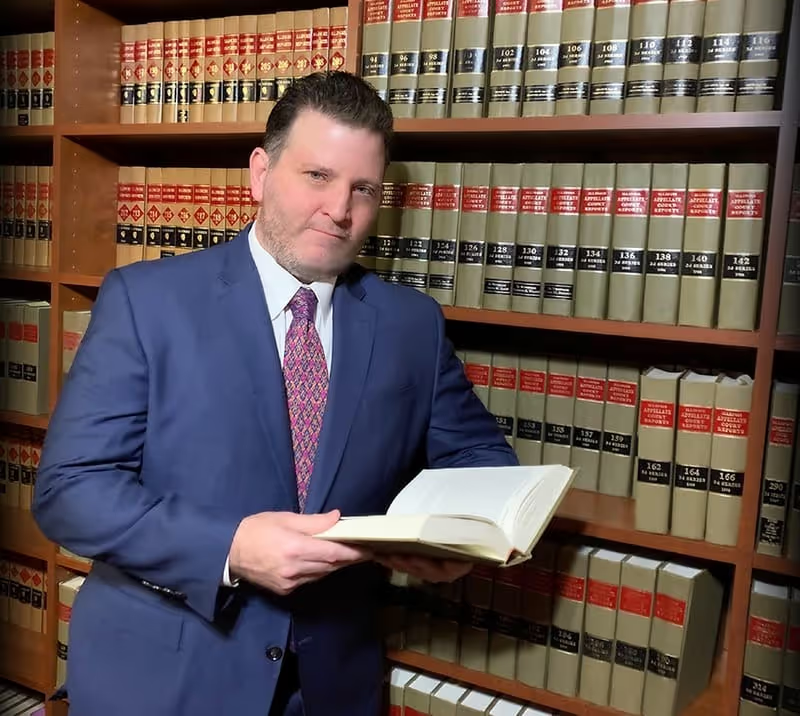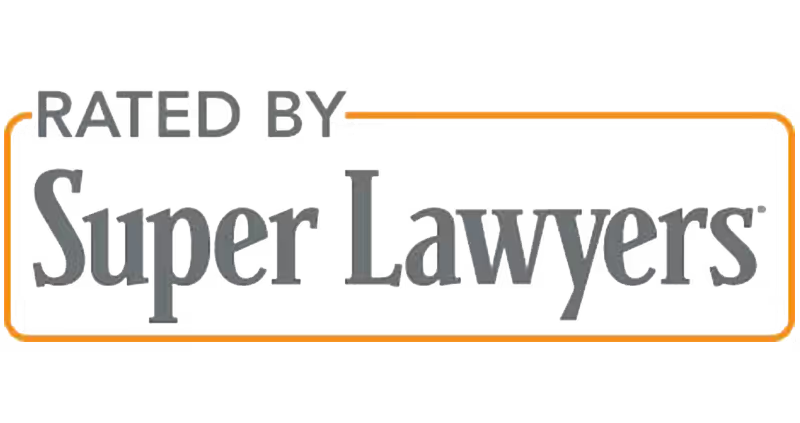Family Disputes, Inheritance, Trusts and Estates.
I have represented clients who are involved in various claims in an area that I call Family disputes. For more than 25 years, I have litigated cases on behalf dozens and dozens of clients that are involved in family disputes, claims regarding inheritance, claims seeking to invalidate a Will, claims seeking to invalidate a Trust, claims alleging breach of fiduciary duty against a trustee of a trust, claims about interests, in trusts holding family or business assets or claims that arise out of probate estates over inheritances.
Some questions I will try and answer on this website include: What is an inheritance? What is an inheritance dispute? What is an heir? What if someone dies without a will or other plan? What is intestacy? What is a will? What is a trust? What can I do if the will or trust is changed? What can I do if someone interferes with my inheritance? What are the requirements to create a Will? What are the requirements to create a Trust? What are the most common ways to challenge a Will? What are the most common ways to challenge a Trust? Who has the right or standing to challenge a Will or Trust? What is undue influence? What is fraud? What is breach of fiduciary duty? What is tortious interference with expectancy? What other claims can be asserted if you were wrongfully deprived of an inheritance?
What is an inheritance?
Inheritance has been part of human society since ancient times and the transfer of property and wealth within families has been common throughout history. Inheritance is the legal transmission of property, money or other assets by a deceased person to others. The concept of inheritance is grounded in the principles of succession law which determines how a person’s estate will be distributed after they die. An inheritance is a set of assets that an individual bequeaths to their loved one or others upon their death. A recipient may receive an asset as an heir or be named as a beneficiary of a will, trust, retirement plan or life insurance. An heir is a person entitled to receive a dead person’s property by a set of rules created by the law to sort out inheritance matters. An heir is a wife, child, parent, sibling or cousin of the dead person and a state creates laws that govern the interest an heir may have in the assets of an ancestor. An inheritance is defined and something that is or may be inherited or property passed at the owner’s death to an heir, family members or those entitled to succeed.
What is an inheritance dispute?
Inheritance disputes are an emotionally challenging and common issue for families. The death of a loved one can bring out underlying tensions, and disagreements over assets can strain relationships.
Inheritance disputes often stem from personal family dynamics. A frequent source of conflict is an unequal or unexpected distribution of assets. When one heir receives a different share than others, or a non-family member is included as a beneficiary, it can lead to feelings of being slighted and questions about the deceased’s intentions.
Blended families are another common scenario for disputes. Conflicts often arise between a surviving spouse and children from a previous marriage. These situations are complicated by fears that the stepparent might rewrite their will to exclude the stepchildren, cutting off their inheritance from the biological parent.
Last-minute changes to a will can trigger a dispute, especially if the person was ill or dependent on a caregiver when the changes were made. Such alterations raise suspicions of manipulation or that the individual lacked a sound state of mind. Another issue involves verbal promises. An heir may have been told they would inherit a specific item, only to find that promise is not in the final legal documents.
Intestacy
If a person dies without a Will or Trust or any other estate plan, they have died in what is called intestacy. When a person dies without a Will or other estate plan, the process of distributing assets can be complicated. If a person dies without a Will or other estate plan, all the assets owned by the deceased will be governed by the probate court in the state where the person died. The probate court will then determine who will inherit the assets of the deceased person. Inheritance law and the rules governing intestacy aim to ensure that distribution is fair and equitable.
In Illinois, if a person dies intestate then their assets are governed by 755 ILCS 5/2-1. If there is a surviving spouse and also a descendant of the decedent: 1/2 of the entire estate to the surviving spouse and 1/2 to the decedent's descendants per stirpes.(Per stirpes which means each descendant gets an equal share.) If there is no surviving spouse but a descendant of the decedent: the entire estate to the decedent's descendants per stirpes. If there is a surviving spouse but no descendant of the decedent: the entire estate to the surviving spouse.
If there is no surviving spouse or descendant but a parent, brother, sister or descendant of a brother or sister of the decedent: the entire estate to the parents, brothers and sisters of the decedent in equal parts, allowing to the surviving parent if one is dead a double portion and to the descendants of a deceased brother or sister per stirpes the portion which the deceased brother or sister would have taken if living.
In essence the spouse takes first followed by children followed by siblings and parents then grandparents followed by more remote relatives.
Wills
A Will is a legal document that specifies a person’s wishes regarding distribution of a person’s property after a person’s death. It is very important that every person has a Will because it will make it easier to distribute your assets after your death. A Will creates a plan that clearly identifies who gets what after you die. A Will protects a person’s loved one to ensure that your assets are left to the people who you want to receive them. A Will also saves your family monies spent on attorneys fighting over your assets. Without a Will, a dead person’s family members can spend years and many thousands of dollars paying an attorney to fight over your assets.
Requirements
In Illinois, Wills are governed by the Illinois Probate Act of 1975. 755 ILCS 5/1 et. seq
The requirements for a valid Will in Illinois include:
- Over 18. The person making the Will, who is called a testator, must be at least 18 years of age and of sound mind and memory. 755 ILCS 5/4-1.
- Writing. Every Will shall be in writing. 755 ILCS 5/4-3. A will does not need to be typed and can be handwritten.
- Signed. Every Will must be signed by the testator. 755 ILCS 5/4-3.
- Witnesses. Every Will must be witnessed by 2 or more credible witnesses. 755 ILCS 5/4-3. The witnesses must be disinterested, which means that the witness will not be receiving anything.
Challenging a Will
There are numerous ways a person can challenge a Will. The only persons who can challenge a Will is an interested party or in other words, the person must establish that they are owed something under the Will or they are a creditor of the deceased person. The legal term that allows a person to challenge a Will is that a person has “standing.” In Illinois, to have a standing a person must have a direct, pecuniary, existing interest which would be detrimentally affected by the probate of the proffered Will. In Re Estate of Keener, 167 Ill.App.3d 270(1988). This includes a person who would inherit if the contested Will is set aside. The most common ways a person challenges a Will are:
- Undue influence. This happens when there is manipulation of the testator’s free will often by family members or caregivers. This is the most common challenge to a Will because it involves someone pressuring a vulnerable testator to include them or someone close to them in a Will. Individuals with mental illness may be at risk for pressure or manipulation. Influence is “undue” when it “prevents the testator from exercising his own will in the disposition of his estate” such that the testator's will is rendered more the will of another. In order to invalidate a Will, the undue influence must have been “directly connected with the execution of the Will” and it must have occurred at the time the Will was made. Schmidt v. Schwear, 98 Ill.App.3d 336, 424 N.E.2d 401, 405, 53 Ill.Dec. 766, 770 (5th Dist.1981). Undue influence can be exerted by direct beneficiaries or by third parties, such as the spouse of a beneficiary. Swenson v. Wintercorn, 92 Ill.App.2d 88, 234 N.E.2d 91, 98 (2d Dist.1968). Influence need not be exerted in an untoward manner to be undue. Even kindness and affection can constitute undue influence if they destroy the testator's “free agency.” Kelley v. First State Bank of Princeton, 36 Ill.Dec. at 575. A rebuttable presumption of undue influence can result when a fiduciary relationship exists between the testator and a legatee. A rebuttable presumption arises when the plaintiff proves (1) the existence of an attorney-client relationship or other fiduciary relationship between the decedent and the beneficiary such that the beneficiary is the dominant party, (2) that the decedent reposed trust and confidence in the beneficiary, (3) that the beneficiary prepared or procured the preparation of the purported will, and (4) that the beneficiary would receive a substantial benefit under the document. Tidholm v. Tidholm, 391 Ill. 19, 62 N.E.2d 473 (1945).
- Fraud. This involves intentional misrepresentation of facts to the testator leading to the signing of a false Will. The fraud which will invalidate a will relates to “such conduct as a trick or device by which a person may be induced to sign the paper under the impression it is something else, or to the alteration of the Will after it is signed, or the substitution of another paper for part of the Will after it has been signed, and matters of like character.” Swirski v. Darlington, 369 Ill. 188, 15 N.E.2d 856 (1938). To establish forgery as a ground to invalidate a will, the contestant may show that (1) the witnesses to the Will were unworthy of belief, or (2) the testator could not have been present at the time and place he was alleged to have signed the Will, or (3) that the Will was not signed in the testator's handwriting. Sellers v. Kincaid, 303 Ill. 216, 135 N.E. 429 (1922). The general rule is that when forgery and fraud are alleged, “courts permit evidence to take a wide range and every fact and circumstance, no matter how little probative value, which throws any light on the issue, is admissible.” Shelby Loan & Trust Co. v. Milligan, 372 Ill. 397, 24 N.E.2d 157 (1939). Fraud cannot be established on mere suspicion. It must be affirmatively proved by clear and convincing evidence. In re Gray's Estate, 39 Ill.App.2d 239, 188 N.E.2d 379 (2d Dist.1963).
- Mental capacity. This happens when a testator lacks the mental capacity to understand the Will’s implication or the value of their estate. There does not have to be some formal declaration by a doctor that a person lacks the mental capacity. Proof that a testator lacked testamentary capacity is another ground for invalidating a will. Testamentary capacity is defined as the “mental ability to know and remember what are the natural objects of [one's] bounty, to comprehend the kind and character of [one's] property, and to make disposition of the property according to some plan formed in [one's] mind.” Beyers v. Billingsley, 54 Ill.App.3d 427, 369 N.E.2d 1320, 1328, 12 Ill.Dec. 306, 314 (3d Dist.1977). The law presumes the sanity and soundness of mind of every person until the contrary is proved. Sloger v. Sloger, 26 Ill.2d 366, 186 N.E.2d 288 (1962). The party contesting a will on grounds of lack of testamentary capacity has the burden of proving such. Estate of Wrigley, 104 Ill.App.3d 1008, 433 N.E.2d 995, 1003, 60 Ill.Dec. 757, 765 (1st Dist.1982). Evidence of physical impairment and evidence that a guardian was appointed for the testator can be considered on the issue of testamentary capacity, but neither piece of evidence is conclusive. Manning v. Mock, 119 Ill.App.3d 788, 457 N.E.2d 447, 457, 75 Ill.Dec. 453, 463 (4th Dist.1983); In re Basich's Estate, 79 Ill.App.3d 997, 398 N.E.2d 1182, 1185, 35 Ill.Dec. 232, 235 (1st Dist.1979). Evidence of a lack of testamentary capacity “must relate to a time at or near the execution of the will,” Manning v. Mock, 75 Ill.Dec. at 462, since the Will may only be invalidated on this ground if plaintiff can prove that the testator lacked testamentary capacity at the time the Will was executed. Id. at 463.
- Procedural errors. This happens when a will has not been properly executed such as missing witnesses or improper signatures.
- Revocation. A later Will can lead to disputes over which Will controls. Revocation is one ground that may be asserted for the purpose of invalidating an instrument. Roeske v. First Nat'l Bank, 90 Ill.App.3d 669, 413 N.E.2d 476, 46 Ill.Dec. 36 (2d Dist.1980). A Will may be revoked only by (1) burning, cancelling, tearing or obliterating it by the testator himself or by some person in his presence and by his direction and consent, (2) the execution of a later will declaring the revocation, (3) execution of a later will to the extent that it is inconsistent with the prior will, or (4) execution of an instrument declaring the revocation and signed and attested in the manner required for the signing and attestation of a will. 755 ILCS 5/4-7(a) (1994). However, the commission of one of the requisite acts of revocation, standing alone, is ineffectual unless accompanied by an intent to revoke. In re Estate of Minsky, 46 Ill.App.3d 394, 360 N.E.2d 1317, 4 Ill.Dec. 884 (1st Dist.1977). A Will last known to have been in the possession of the testator which cannot be found upon his death is presumed to have been destroyed by the testator with the intention of revoking it, and under these circumstances the burden is on the proponent to prove that the proffered will was valid at the time of the testator's death. In re Estate of Marsh, 31 Ill.App.2d 101, 175 N.E.2d 633 (1st Dist.1961). Factors to be considered in addressing the rebuttal of the presumption include (1) evidence as to statements from the testator that he did not intend to revoke the will, (2) evidence that he entertained a kind and loving attitude toward the proposed beneficiary under the will up to the time of death, and (3) evidence of other persons' access to the will prior to death. In re Estate of Strong, 194 Ill.App.3d 219, 550 N.E.2d 1201, 141 Ill.Dec. 155 (1st Dist.1990). Where a will remains in the testator's possession until his death and is then found among his papers with erasures, alterations, cancellations, or tearings, the presumption is that such act, manifest upon the will, was done by the testator with the intention of revoking the will. In re Estate of Deskins, 128 Ill.App.3d 942, 471 N.E.2d 1018, 84 Ill.Dec. 252 (2d Dist.1984).
- Ignorance of Contents of Will. Where a Will is prepared for a testator, and he is not given an opportunity to read it, or if he is unable to read and its contents have not been explained to him, such an instrument will not, on contest, be sustained as his Will. Pepe v. Caputo, 408 Ill. 321, 97 N.E.2d 260 (1951); Downey v. Lawley, 377 Ill. 298, 36 N.E.2d 344 (1941). It is likewise the rule that where the testator is shown to have executed an instrument as his Will, it will be presumed, in the absence of evidence of fraud, imposition or mental incapacity, that he was aware of the content, and his signature is prima facie evidence of his having understandingly executed it. Sheer v. Sheer, 159 Ill. 591, 43 N.E. 334 (1895). Where a Will is shown to have been prepared at the request of the testator, though under general directions, and he afterwards executes the same in the manner provided by the law, it may not be set aside on the ground that he did not understand what it contained, except upon clear and satisfactory proof of that fact. Sheer v. Sheer, 159 Ill. 591, 43 N.E. 334 (1895); Compher v. Browning, 219 Ill. 429, 76 N.E. 678 (1906).
Trusts
A trust is a legal arrangement where assets-money, property, investments- are passed to a third party known as a trustee to hold and manage the assets on behalf of a beneficiary or beneficiaries. Trusts separate the asset’s legal ownership from the beneficial ownership. There are at least three people involved with the creation of a trust. The settlor is the person who places assets in a trust. This can be done in the person’s lifetime or through a valid will. By placing the assets onto this structure, the original owner may relinquish some of their rights and give responsibility to a trustee during their lifetime. However, they can gain a lot more control in other ways. The trustee is the legal owner of the trust who has the power to deal with and administer the trust’s assets. The last person is the beneficiary and that is the person(s) who benefit from the trust.
Revocable versus Irrevocable Trusts
A trust can be revocable or irrevocable and can specify how and when the assets pass to the beneficiaries. A revocable trust remains in control of the settlor and can be amended or terminated at any time. This means you can change or remove beneficiaries, appoint new ones, change trustees or any of the terms of the trust. This option is suitable for people who want flexibility in managing their estate and whose circumstances may change over time. The main drawback of a revocable trust is that it can be attached by your creditors because you remain in control. If you create an irrevocable trust, you lose control permanently and you cannot change the terms of the trust. Assets placed in an irrevocable trust become the trust’s property and cannot be retrieved by the grantor. An irrevocable trust cannot be attached by your creditors so it protects your assets and you from lawsuits and you will not incur any estate or income taxes. If assets are placed in an irrevocable trust, it can also help people qualify for Medicaid because the assets are not owned by you.
Benefits of a trust
- Avoid taxes. If a person' s assets are placed into an irrevocable trust and passed to others at the person’s death, there will be no inheritance tax. Inheritance taxes can be costly so many people can avoid inheritance taxes by placing their assets in an irrevocable trust.
- Control. When a person creates any type of Trust, they can create terms to establish who will be a beneficiary and state exactly what each beneficiary will receive. Thus, the person creating a Trust still remains in control of their assets.
- Privacy. Trusts can provide privacy because they avoid the court system. A Will be a public record so anyone can read them at the courthouse.
- Avoid probate court. A Trust is not subject to the probate court so it cannot be controlled by a probate court and will not incur the substantial costs involved with the probate court.
- Protect wealth across generations. A Trust can be set up to pass property or real estate to several generations whereas a Will cannot do such.
Requirements
In Illinois, Trusts are governed by the Uniform Trust Code. 760 ILCS 3/101 et seq. The requirements for creation of a valid trust are essentially the same as to create a valid Will:
- Over 18. The person making the trust, who is called a testator, must be at least 18 years of age and of sound mind and memory. 760 ILCS 3/101 et seq.
- Writing. Every trust shall be in writing. 760 ILCS 3/101 et seq. . A trust does not need to be typed and can be handwritten.
- Signed. Every Trust must be signed by the settlor. 760 ILCS 3/101 et seq.
- Witnesses. Every Trust must be witnessed by 2 or more credible witnesses. 760 ILCS 3/101 et seq. The witnesses must be disinterested which means that the witness will not be receiving anything.
Challenging a Trust
There are numerous ways to challenge a Trust or to assert claims related to a Trust. Most of the requirements and ways to challenge a Trust are the same as when challenging a Will that are discussed above.
- Undue Influence. This happens when there is manipulation of the settlor’s free will often by family members or caregivers. This is the most common challenge to a Trust because it involves someone pressuring a vulnerable settler to include them or someone close to them in a Trust. Individuals with mental illness may be at risk for pressure or manipulation. Influence is “undue” when it “prevents the settlor from exercising his own will in the disposition of his estate” such that the settlor’s Trust is rendered more the Trust of another
- Fraud. If the settlor was deceived into signing the trust or if the document’s contents were misrepresented, it can be contested.
- Lack of capacity. If the settlor was not of sound mind when the Trust was created or amended, it may be contested.
- Breach of Fiduciary Duty. The trustee who is in control of the trust owes a fiduciary duty to all the beneficiaries. If the trustee misuse funds or fails to follow the Trust terms, beneficiaries will have grounds to sue.
- Procedural errors. This happens when a Trust has not been properly executed such as missing witnesses or improper signatures.
- Revocation. A later Trust can lead to disputes over which Trust controls. Revocation is one ground that may be asserted for the purpose of invalidating a Trust.
Tortious Interference with Expectancy
In addition to contesting a Will or a Trust, there is a cause of action that Illinois recognizes that allows people to assert if they believe they have been wrongfully excluded from an inheritance.
The tort of intentional interference with an expectancy was first discussed with favor in Lowe Foundation v. Northern Trust Co., 342 Ill.App. 379, 96 N.E.2d 831 (1st Dist.1951). Since that time, the existence of this cause of action has been generally accepted by the courts in Illinois. Nemeth v. Banhalmi, 99 Ill.App.3d 493, 425 N.E.2d 1187, 55 Ill.Dec. 14 (1st Dist.1981); Robinson v. First State Bank of Monticello, 97 Ill.2d 174, 454 N.E.2d 288, 73 Ill.Dec. 428 (1983); In re Estate of Knowlson, 154 Ill.App.3d 249, 507 N.E.2d 28, 107 Ill.Dec. 364 (1st Dist.1987); In re Estate of Jeziorski, 162 Ill.App.3d 1057, 516 N.E.2d 422, 114 Ill.Dec. 267 (1st Dist.1987). To recover on this theory, the plaintiff must prove the existence of an expectancy; that the defendant interfered with his expectancy; that the interference involved conduct that is tortious in itself such as fraud, duress or undue influence; that there is a reasonable certainty that the expectancy would have been realized but for defendant's interference; and damages. Nemeth v. Banhalmi, 99 Ill.App.3d at 499; In re Estate of Knowlson, 154 Ill.App.3d 249, 507 N.E.2d 28, 31, 107 Ill.Dec. 364, 367 (1st Dist.1987). The plaintiff's expectancy would include any devise or bequest that would otherwise have been made under a testamentary instrument or any property that would have passed to the plaintiff by intestate succession. Id. The availability of this tort action may depend upon the availability of a will contest remedy under the provisions of the Illinois Probate Code. 755 ILCS 5/8-1 and 8-2 (1994). If the tort action is premised upon the invalidity of a will, the plaintiff must contest the will within the six-month period provided by the Probate Code. Unless a will contest is filed, an action for tortious interference with an expectancy may be considered an impermissible collateral attack upon the probate proceedings and will not be available to the injured party. Robinson v. First State Bank of Monticello, 97 Ill.2d 174, 454 N.E.2d 288, 73 Ill.Dec. 428 (1983). Further, an action for tortious interference will not lie if the actual damages recoverable under the tort action are the same as under a Will contest. In re Estate of Hoover, 160 Ill.App.3d 964, 513 N.E.2d 991, 992; 112 Ill.Dec. 382, 383 (1st Dist.1987). The availability of punitive damages for tortious interference is not considered grounds in itself to allow the plaintiff to pursue this tort action when a Will contest remedy would otherwise provide adequate relief. Id. If additional relief is possible under an action for tortious interference which is not available in a will contest, then the tort remedy is cognizable under limited circumstances. In re Estate of Knowlson, 154 Ill.App.3d 249, 507 N.E.2d 28, 31; 107 Ill.Dec. 364, 367 (1st Dist.1987) (“tort action is appropriate where the tort has made it impossible to probate a prior will”); In re Estate of Jeziorski, 162 Ill.App.3d 1057, 516 N.E.2d 422, 114 Ill.Dec. 267 (1st Dist.1987) (where plaintiff alleges fraudulently induced inter vivos transfers depleting the probate estate, a will contest will not provide adequate relief). Under these circumstances, the tort action should likewise be filed within the six-month period provided to contest a will. In the event that a will is probated, an action for tortious interference with an expectancy should be consolidated with the will contest action. In re Estate of Jeziorski, 162 Ill.App.3d at 1062, 114 Ill.Dec. 267, 516 N.E.2d at 426. However, the trial court will retain discretion to sever issues for trial, “based upon an appraisal in each case of administrative convenience and the possible prejudice to substantial rights of litigants in light of particular problems which may arise at trial.” In re Estate of Knowlson, 507 N.E.2d at 32.
The court in Nemeth v. Banhalmi, 99 Ill.App.3d 493, 425 N.E.2d 1187, 55 Ill.Dec. 14 (1st Dist.1981), adopted the Restatement (Second) of Torts §774B approach to the tort of intentional interference with an expectancy. Section 774B states: “One who by fraud, duress, or other tortious means intentionally prevents another from receiving from a third person an inheritance or gift that he would otherwise have received is subject to liability to the other for loss of the inheritance or gift.” Comment d to §774B recognizes that the major causation problem is whether the plaintiff would have received the expectancy but for the tortious act. The normal remedy for intentional interference with an expectancy is an action in tort for the loss suffered by the one deprived of the legacy or gift. Restatement (Second) of Torts §774B, Comment e (1979).
Under Illinois law, the damages available for a claim of tortious interference include: Compensatory damages, which may include:– loss of the benefits of the contract (Koehler, 2016 IL App (1st) 142767, ¶ 64);– lost customers (Advantage Mktg. Grp., Inc. v. Keane, 2019 IL App (1st) 181126, ¶ 48);– out-of-pocket damages (Dowd & Dowd, Ltd. v. Gleason, 352 Ill. App. 3d 365, 384 (2004) Tortious Interference: Illinois– loss of potential income from property (City of Rock Falls v. Chicago Title & Tr. Co., 13 Ill. App. 3d 359, 363 (1973));– a decline in expected sales even where the plaintiff received a profit and did not suffer a loss (see D 56, Inc. v. Berry’s Inc., 955 F. Supp. 908, 918 (N.D. Ill. 1997) (applying Illinois law));– actual harm to reputation, if harm to reputation is reasonably to be expected to result from the interference (Koehler, 2016 IL App (1st) 142767, ¶ 64); and– emotional damages, where the defendant’s interference with the contract caused the plaintiff mental and physical suffering (Stafford v. Puro, 63 F.3d 1436, 1443-45 (7th Cir. 1995) (applying Illinois law)). • Punitive damages for misconduct going above and beyond that required to establish the underlying tort (Koehler, 2016 IL App (1st) 142767, ¶¶ 89-93; see Question 8). The economic loss doctrine, which bars parties from recovering purely economic damages in most tort cases, does not apply to claims for tortious interference with contract or prospective economic advantage (see Metro. Water Reclamation Dist. of Greater Chicago v. Terra Found. for Am. Art, 2014 IL App (1st) 130307, ¶ 59). Under Illinois law, punitive damages are awarded to punish the wrongdoer and to deter others from similar behavior. An award of punitive damages is appropriate where the tortfeasor’s conduct demonstrates a high degree of moral culpability, such as where the defendant acts: • With fraud, actual malice, or deliberate violence or oppression. • Willfully, or with a level of gross negligence demonstrating a wanton disregard for others. (Koehler, 2016 IL App (1st) 142767, ¶¶ 89-93.) Courts do not award punitive damages if the defendant’s conduct did not exceed what was necessary to establish the tort itself (Cress, 341 Ill. App. 3d at 182)
Other claims
There may be other claims that can be asserted such as a conspiracy or aiding and abetting so it is important to contact an attorney if you believe you have been wrongfully deprived of an inheritance.





